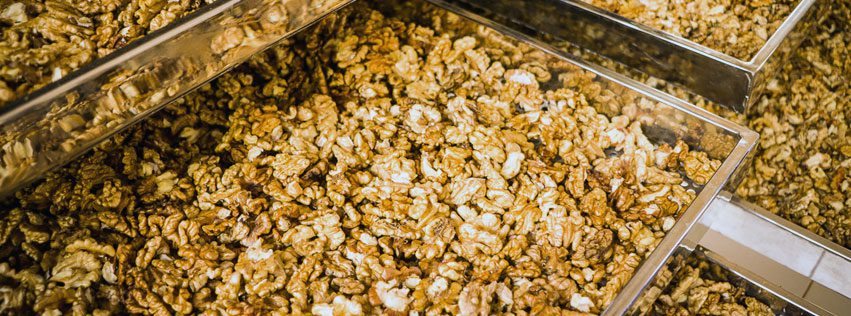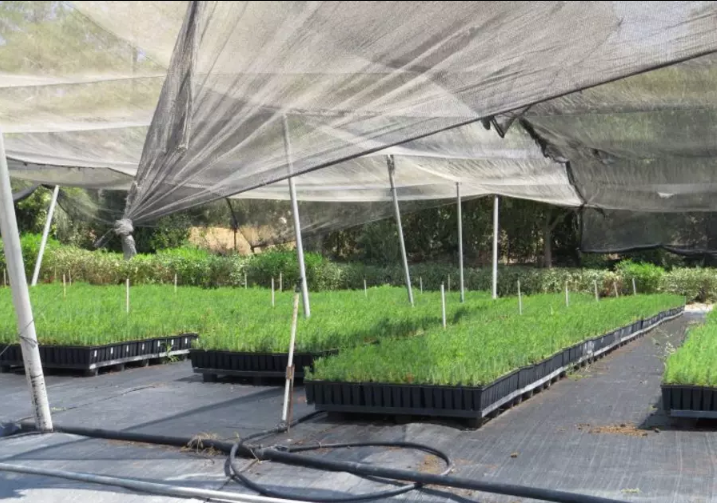– Mountain Life, Addis Fortune, 14 December 2014.
It may be that, more than any other terrain, mountain regions exemplify a particular paradox – that of dense poverty coexisting with a special potential for transformative prosperity.
The conditions that create mountain people’s impoverishment are rooted both in local and broader contextual conditions. Mountain areas are often blessed with water but have sparse areas for agricultural cultivation, limited to the terraces along mountainsides.
In Morocco’s Atlas ranges, these basic factors, coupled with two others – the low market value of barley and corn, the traditional staple crops and population growth – currently compel family farmers to purchase in the marketplace on average half or more of their staple needs.
The resulting pressure to make the transition towards cultivating cash crops, most commonly fruit trees and aromatic plants, has increased the demand and prices of these seeds, trapping farmers in the subsistence poverty state. In Morocco and so much of the world, the highest proportion of the poor thus reside among the peaks.
Five factors for transformation
Thankfully, however, this situation can be overcome and, as successful pilots have shown, there are five major factors involved.
1. The global rise in demand for organic products has created the opening for the most disadvantaged family farmers, who – fortuitously as it now turns out – never had the financial means to ride the chemical agricultural train. Merely by making minor adjustments, primarily to the handling of their product, they may step into a specialized environment that often will pay double or more than what they could hope to receive on the local markets for their yield.
2. The sine qua non for success in human development projects has been shown to be the people’s participation in achieving their future, both by determining every step of the way and managing actual project activities. Overcoming subsistence poverty requires ‘learning by doing’ in technical matters (related to agriculture as well as in other areas such as education and health), in building skills in management, consensus-building and in operations.
3. While potentially family farmers could have their products certified as organic, typically they do not possess the required market reach, that extends beyond traditional distribution channels, in order for their product to be processed and delivered to buyers around the world. This is where local cooperative building becomes essential. However, outside relationships too, make a critical difference; pilot experience with walnuts in the High Atlas mountains has shown that a combined profit-nonprofit organizational arrangements provides the flexibility necessary to support profit-making green growth that fuels broader human development.
4. Building water efficiency, mainly through water containment and by utilizing gravity flow and drip systems has two positive effects. Not only is arable land increased, often by even more than fifty per cent, but the new agricultural terraces that are built result in increased capability with regard to stemming mountainside erosion, a common occurrence that all too often carries devastating consequences. The dozens of deaths by mountain mudslides this rainy season in Morocco need not, and should not, ever happen again.
5. There are a number of fruit trees and plants traditionally cultivated in the High Atlas mountain region of Morocco without the application of pesticides. Species include walnut, cherry, fig and almond, as well as saffron, caper and oregano, along with many others. A broad range of benefits, including avoiding potential vulnerabilities in the market and ecology, come with planting both indigenous and the range of organic trees and plants that are possible in an area.
Four questions for change
Our annual celebration of International Mountain Day fundamentally intends to bring practical good to the worldwide inhabitants of this terrain. It is high time that, through public-private partnership, the people who grow the food – and who mostly wish to continue to live and work where they are – reap more of its value. This can be done by enabling them to create a complete value chain. Let us therefore ask the following frank questions:
1. How will land be granted for community-managed tree and plant nurseries, thus reducing communities’ costs to a fraction, sharing risk and creating self-reliance?
2. How will the installation of irrigation systems – typically the costliest of the initiatives comprising the value chain – be paid for, even as communities would gladly give their labor in-kind to assist implementation?
3. Will development-implementing agencies live and be among the people whom they intend to benefit and who are, crucially, the drivers of their development and upon whom sustainability rests?
4. Will we fund, as we must, start-up value chains and not decline them outright when what they may simply need is a single component to be funded, all others being up and running?
Mountain life has a special integrity – and is confronting the seemingly inadequate rate of opportunities realized and the enormity of the potential yet to be fulfilled. Nevertheless, with proven pathways to success existing, let us see how life in this terrain appears in a year’s time.
Dr. Yossef Ben-Meir is president of the High Atlas Foundation.
yossef@highatlasfoundation.org




